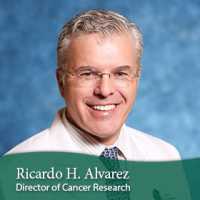Author Interviews, Biomarkers, Cancer Research / 28.11.2018
CTCA Reports Thousands of Patients Have Had Treatment Based On Precision Biomarkers
MedicalResearch.com Interview with:
Ricardo Alvarez MD MSc
Medical Director of the Breast Cancer Center
Director of Cancer Research
Cancer Treatment Centers of America, CTCA
Atlanta
MedicalResearch.com: What is the background for this study? What are the main findings?
Response: “The background of this study comes from five years of experience in one of our precision medicine programs that was launched in 2013 and this is the experience of a group of personnel from a hospital that helps physicians in five different hospitals that are a part of the CTCA network and for physicians who order a next generation sequencing test.
In this particular report, we have only one vendor, and that is Foundation Medicine and we analyze three different genomic platforms, Foundation One test, Foundation Act and Foundation One Hem.
In total, approximately 8,800 tests have been analyzed and that was the presentation at ESMO 2018. It’s important that the Precision Medicine Program (PMed) helps physicians to identify actionable and potentially actionable targets for the result of this test so patients can be treated with targeted therapy, and this can be done by selecting clinical trials or recommending patients to be treated off-label agents.
When we say off label, meaning that they are not specifically FDA-approved drugs for this indication that we are treating.”
(more…)


